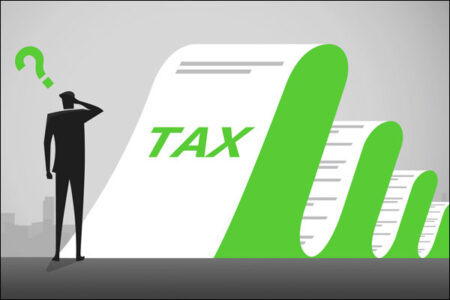
We suppose that there is now a consensus that the “largest corporate tax reduction in the history of the United States” in 2017 was a big success. “The results of the Trump corporate tax reform were more business investment, more growth, more wages for workers, and little impact on government revenue as lower corporate rates were offset by an expanding economy. Game, set, match.”[1] One response to the National Bureau of Economic Research study on that tax change came from a former Obama administration economist: “These are the most convincing estimates of the response of investment to corporate tax rates that I’ve ever seen.”[2] Corporate taxes made up only 9% of federal receipts in FY 2022, ending September 30, 2022, but the impact of the investment lasts for decades. Hopefully, future changes to the US corporate tax structure will focus on growth for its attendant effects, not just raising revenue.
The individual income tax is a much bigger player in federal receipts, providing 54% in FY 2022. With the expiration of the 2017 “overhaul” at the end of 2025, suggestions for change are in the air.[3] The Wall Street Journal article’s author points out that competing plans for simplification require trade-offs because definitions of such items as “income” or “dependent” require “mind-numbing language to precisely describe human and economic activities in terms that don’t leave room for loopholes.”[4] Surprisingly, 80% of that 54% of federal receipts is paid by only 10% of filers with incomes of $200,000 or above. This seems a rather precarious place for the federal fisc to be. Tax increases to this group risk changing generally passive taxpayers into consumers actively seeking to reduce their tax burden. A largely voluntary tax system could be unnecessarily stressed by trying to fund “unpaid-for tax cuts” ending in 2025 by raising taxes on this group.
If the coming national election provides a majority for one party, then we have a feel for which direction tax policy will take. Divided government with its current inability to compromise will probably leave us with expiring tax provisions and a return to 2016 tax policies.
If you or any of your other advisors have questions about the issues raised here, please contact your investment manager or one of us.
William H. Darling, CPA – Chairman & CEO
Jeanne M. FitzGerald, CPA – Tax Manager
